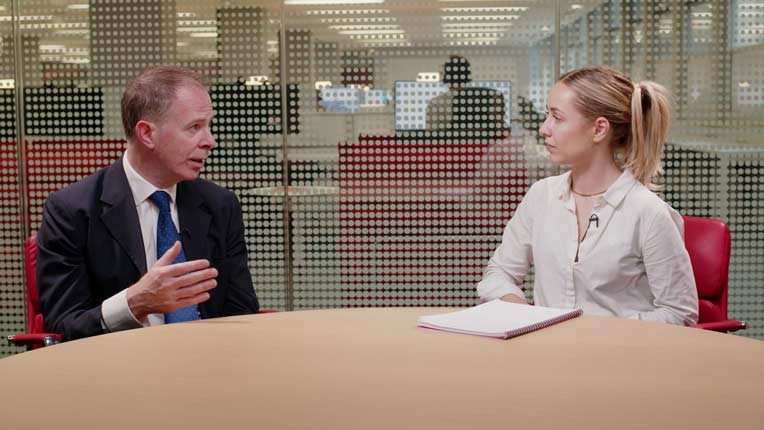Emma Wall: Hello, and welcome to the Morningstar European Investment Conference. I am Emma Wall and here with me today is Andrei Kozyrev, former Foreign Minister of the Russian Federation. Andrei is here to tell me how in his words: money and politics are too intimately linked in Russia.
Hello, Andrei.
Andrei Kozyrev: Hello.
Wall: So, we had news yesterday that Brent crude oil had fallen to $55 a barrel off the back of the Fed announcements about rates. You've talked about how reliant the Russian economy is on the oil price drawing parallels with sort of Soviet Union economic model of the late Eighties. How similar are the two? Will Russia be able to recover without a buoyant oil price?
Kozyrev: Yes, they are very similar. Unfortunately, what we did not succeed in my time, in my government and neither government after us was able to succeed to change the economic model from oil and other natural resource dependence to something like driven more by internal factors.
Though there is a segment of economy which is kind of different from oil, and some investment in that field proved to be very successful and due course, there will be always room for investment and for development in an oil business also in Russia, even with the oil price as low as it is.
But, of course, unfortunately, the large picture depends on the oil factor and the Russian budget was based on the assumption of about $100 [a barrel]. So it's almost half income and that, of course, creates considerable pressure on Russian fiscal and then financial situation and the exchange rate was hit also by sanctions, but not as much as by the oil.
So if oil stands at this low level, relatively low level as it us like $55-$60 for a long time, then Russian economy and Russian government would be under pressure to do something.
Wall: You mentioned the sanctions there. Russian inflation is running around 17% and the economy is officially in recession. How much of that is due to the oil price and how much of it is due to the geopolitical things going on that the sanctions, the things with Georgia and with the Ukraine?
Kozyrev: Well, that's very difficult actually to assess and the assessments vary. For instance, Moody's, the rating company in their recent research or rating, they actually put the oil – the sanctions on the third place. So I think it's more or less correct.
I would concur with that that oil price hits heavily because of the structure of economy. And sanctions, yes, the sanctions limit ability or almost nullified ability, for external sources of financing, which is, of course, heavy blow to big institutions.
But let us not forget that a large part of medium-sized business in Russia, including medium-sized banks, for instance, they never had much exposure to world financial market. So they might be outsourced and that they are now supported by central bank, but where the central bank takes the money, the liquidity to support the banking system, again from the old revenue, so if it goes on for long, then the financial reserves might dry out and they are drying out.
And there is also [the impact of] capital flight. So these factors in the long-run, it's very, very negative.
Wall: Obviously, all of this has an effect on the stock market and it's creating volatility. If you look back over three, five, 10 years, Russia's always had quite a volatile stock market. You mentioned in your talk earlier that the Russian people themselves consider themselves European and ideally would move towards a model much more similar to those of Western economies, which have growing, more stable stock markets.
Is that something you can see happening in the future for Russia for its economy and its stock market?
Kozyrev: The emerging economies, they are marked by a high volatility and if in the West like change of 3% is a headline news on the market; in the emerging economies, it's like…
Wall: A week.
Kozyrev: Yeah. 5%, 7%, they even supposed to be a more or less within daily range. So, its typical situation is till what happened in Ukraine, it was more or less within emerging markets model.
Now actually it's amazing that Russian stock market recovered considerably, despite the oil price and despite the sanctions. It's driven – it's much narrow today and the volumes are limited, but the market looks like improving. It's speculative. Of course, it means that there are a lot of speculative forces. You know Russian – the part of Russian, the character of the Russian mentality, you can see it in Russian literature, part of it is gambling.
Wall: So those two go hand in hand.
Kozyrev: Yes. And you know Dostoevsky himself was a gambler.
Wall: Well, Andrei, thank you very much.
Kozyrev: Thank you.
Wall: This is Emma Wall for Morningstar. Thank you for watching.


























